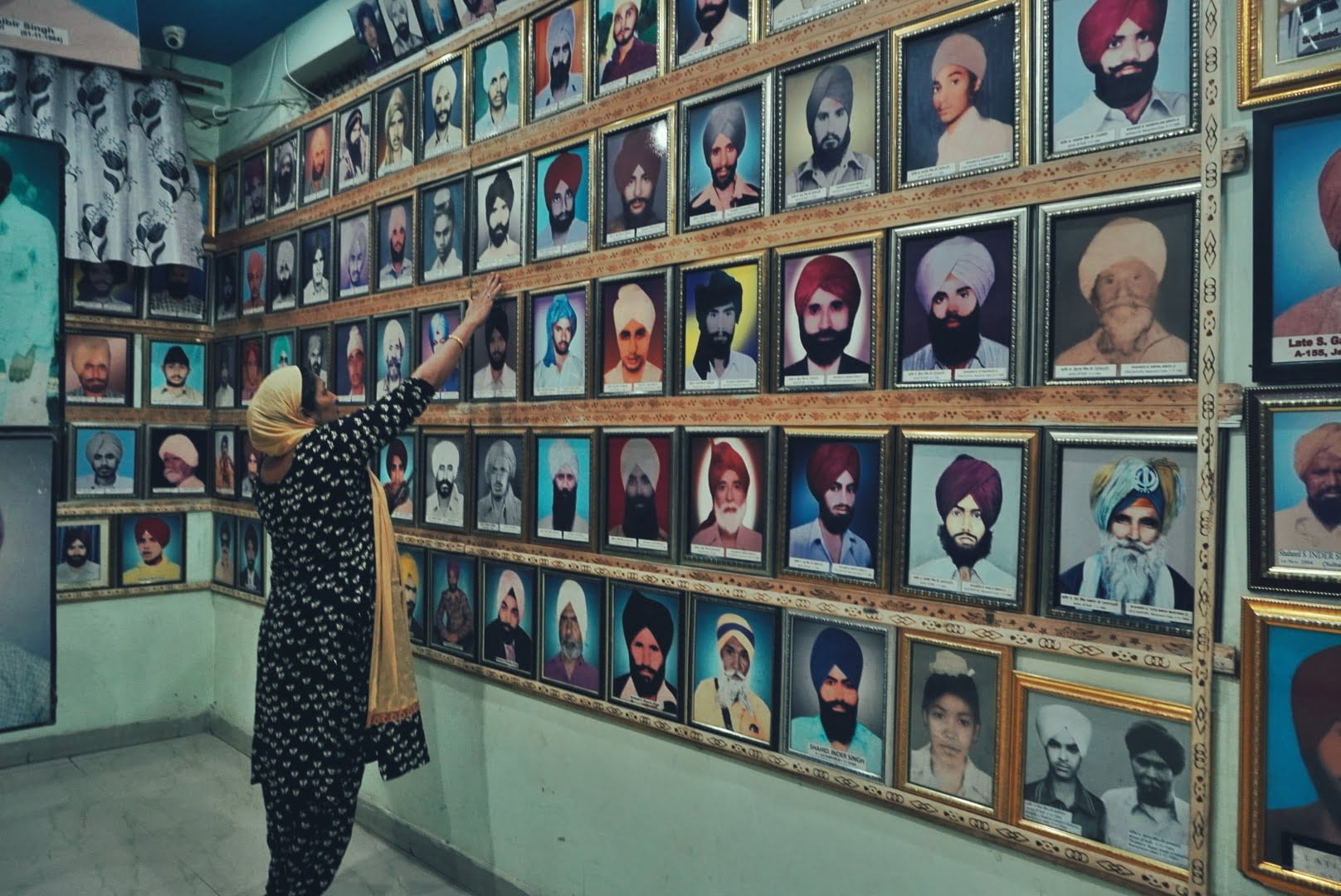Women have always borne the brunt of historical brutalities, despite so, they have proved to stay strong and act as the backbone of their families. This story is also of the women, whose lives were left to rot in the aftermath of the anti-Sikh massacre of 1984 and yet they have continued to support their families against all odds.
Source: Anshuman Bajpai
The 1984 anti-Sikh pogrom was followed by the assassination of the then Prime Minister Indira Gandhi, by two of her Sikh bodyguards. Leading to the violence unleashed against Sikhs across the country, killing around 3,000 people in Delhi alone, as officially reported. Those who succumbed to this barbarity were survived by their widows and children. The widows of the 1984 anti-Sikh massacre are still putting up a strong fight after 39 years, holding up their successive generations, hopeful of going back in time to financial stability before the massacre. These massacres have seared its survivors in shock and disparity.
Source: Anshuman Bajpai
One of the oldest survivors – Shamni Kaur, who lost 11 members of her family to the anti-Sikh massacre, shares the deteriorating conditions of the houses they have been rehabilitated to. With a meagre income in the form of a pension of Rs 12,000, she prioritises her grandchildren’s basic education hoping for them to escape this place of darkness, there is hardly anything left to fend off their living conditions. Fate has no mercy on their wrinkled palms.
Source: Anshuman Bajpai
These widows still struggle to make ends meet. Their children who were very young during the anti-Sikh massacre, still suffer from post-massacre trauma and are not able to provide for their forthcoming generation. They have fallen prey to unemployment, drug abuse, alcoholism, and eventually death. Most survivors have a similar experience. Shamni Kaur herself lost a son to drugs but not hope.
Undeterred by her age she still runs a small mill adjacent to her house, since the meagre sum of her pension is not enough to provide for all the members of the family. She mentions how she and many other women like her and their daughters managed a living, “Doosron ke gharon mein kaam kar ke paet bhara hai (I had to work at other people’s homes to earn a living)“.
Undeterred by her age she still runs a small mill adjacent to her house, since the meagre sum of her pension is not enough to provide for all the members of the family. She mentions how she and many other women like her and their daughters managed a living, “Doosron ke gharon mein kaam kar ke paet bhara hai (I had to work at other people’s homes to earn a living)“. To some relief, she was one of the few women who later was given a job by the government, but this did not resolve the crisis. She had to leave her young children at home for a job that did not pay enough to suffice.
Most of the families here have resorted to odd jobs for a living and to provide for their grandchildren wishing that they would live a worthy life. Even if this demands living in dilapidated spaces with leaky and broken roofs for the family.
Source: Anshuman Bajpai
Shanti Devi, another survivor of the pogrom we spoke to, shares that she and her family live in two damp and cramped rooms with cracked walls. Her husband and brother-in-law were killed by the mobs. Life has been very difficult for her since then and she has tried doing everything in her capacity to provide for her family. Her house also is witness to the bad conditions these families are forced to live in. The broken walls, plaster, and doors are all coming off slowly, anticipating a big accident any day.
Shanti Devi is one of the many survivors, who never had a job nor does she now have a pension, as was promised by the government. She only receives a monthly allowance of Rs. 2,000 which is the only income for her family.
Shanti Devi is one of the many survivors, who never had a job nor does she now have a pension, as was promised by the government. She only receives a monthly allowance of Rs. 2,000 which is the only income for her family.
Source: Anshuman Bajpai
On the contrary, most widows do not even have a pension to survive on since only a few of them received jobs and financial support from the government. The Delhi Minorities Commission published a report titled, ‘Socio-Economic & Educational Status of Survivors of the 1984 anti-Sikh riots in Delhi,’ which surveyed that only 3% received the financial support offered by the government. More than half of the respondents were found to be illiterates, while 28% received primary education and 15% received secondary education. The report also finds that only 3% received higher secondary education and just 1% of the total population were graduates.
Source: Anshuman Bajpai
All these years in the face of crisis, nothing defeats their persistence in pursuit of justice. They show up to court regularly in making sure that there is no escape for the perpetrators. Shamni says, “Inhone hamare parivar khatam kar diye, ab ye bhi jail main rahe apne pariwaar se door. Inhe bhi toh pata chale parivaar ke saath nahi rehna kaisa lagta hai (He killed our families, he should rot in jail away from his family. He should know how it feels to not have your family around)”.
Source: Anshuman Bajpai
Despite the savagery of time and events, the women of the widow colony are still courageously fighting against all odds.
Source: Anshuman Bajpai
Every evening they assemble in the community park trying to take a little time off their sorrows, seeking refuge in watching their grandchildren playing around as a beaming hope for the future.




